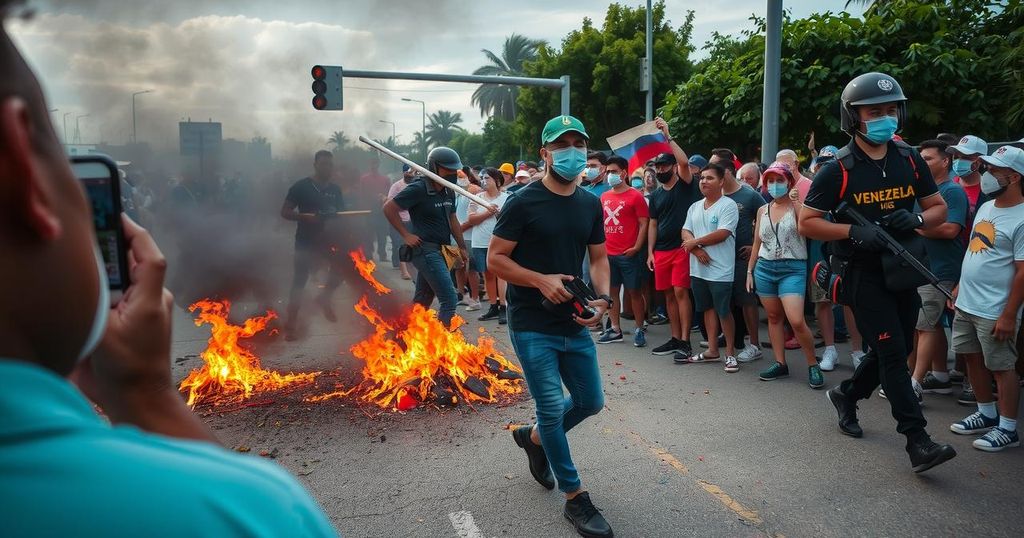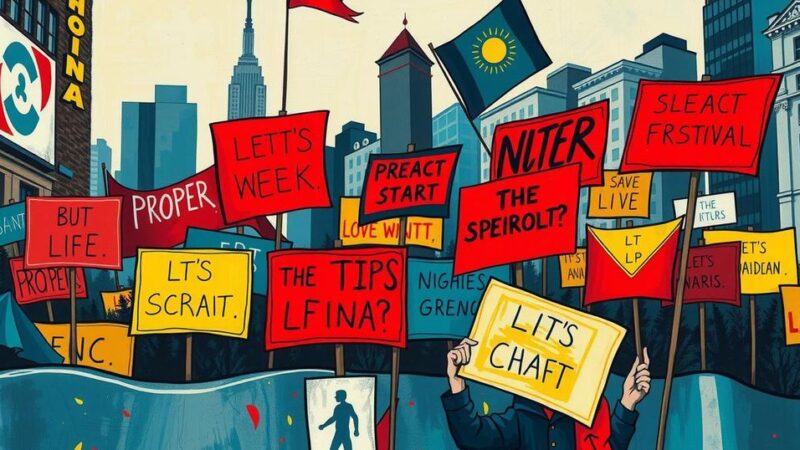Amidst growing criticism over a disputed election, President Nicolás Maduro has announced the release of over 100 protesters, building on a previous release of 225 individuals. The legitimacy crisis facing his administration is marked by significant international scrutiny, widespread allegations of electoral fraud, and numerous reports of human rights violations, including the arbitrary detention of minors and enforced disappearances.
In a bid to alleviate mounting domestic and international pressure following a disputed presidential election, Venezuelan President Nicolás Maduro has announced the release of over 100 protesters who were detained amid widespread civil unrest. This measure follows a previous release of 225 individuals last month as part of the regime’s efforts to appear more amenable to democratic norms. According to the Vice Presidency of Citizen Security and Peace, under Diosdado Cabello, 103 detainees have been released as of Tuesday. However, human rights organizations have confirmed only 25 of these releases. Many of the detained were accused of terrorism-related offenses, often based on weak or dubious evidence such as political content on their personal devices.
In particular, the release includes 19 minors who were arrested during protests rejecting the electoral outcomes announced by the National Electoral Council, which proclaimed Maduro the victor without revealing comprehensive data and amid allegations of electoral fraud. The treatment of these minors has drawn significant international scrutiny, leading to public outcries from their mothers and human rights advocates.
Maduro’s administration is facing a legitimacy crisis with the approaching presidential inauguration, which intensifies scrutiny from the international community. This situation echoes previous disavowal actions by international bodies following the contested 2018 elections. The regime’s heavy-handed response to opposition voices, including the exile of opposition candidate Edmundo González Urrutia, has placed additional pressure on Maduro, who is accused of escalating repressive tactics post-election, including arbitrary detentions and human rights abuses.
Additionally, ongoing investigations into these abuses by international entities such as the International Criminal Court have prompted governmental attempts to project an image of upholding human rights. Recent events include the return of officials from the High Commissioner for Human Rights after their expulsion in February and reports of missing citizens, including Sofia María Sahagún Ortíz, who has been untraceable since October 23, exacerbating concerns regarding enforced disappearances.
Amid these developments, Maduro’s government appears focused on consolidating its power, attempting to defuse international criticism while continuing to detain alleged political dissidents.
The political climate in Venezuela has been turbulent, especially following the 2023 presidential elections. Widely regarded as contested, the results, which favored Nicolás Maduro, have been accompanied by allegations of fraud. Since the elections, the Venezuelan government has seen a significant increase in the number of arrests of protesters demanding transparency and legitimacy. The international community, including human rights organizations, has expressed growing concern about these detentions and the treatment of political prisoners, particularly minors, during this period of unrest.
In summary, Nicolás Maduro’s announcement regarding the release of over 100 detained protesters is a strategic move aimed at reducing both domestic and international pressure as the legitimacy of his presidency faces increasing scrutiny. While this gesture is viewed as an attempt to assuage criticism, significant challenges remain, including the ongoing repression of political dissent and human rights violations that have drawn international condemnation. The situation continues to evolve as human rights organizations intensify their calls for accountability and transparency from the Venezuelan government.
Original Source: english.elpais.com






